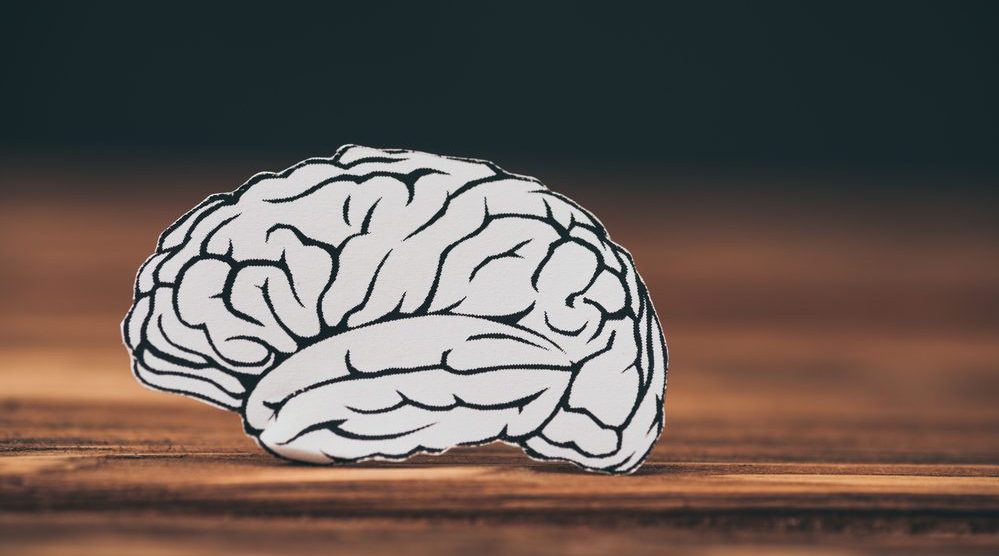 The stages of change model, also known as the transtheoretical model, was developed by James O. Prochaska and Carlo DiClemente in the 1970s. Addiction is a highly complex disease. Some people find it easier not to fall into addiction, while others are more susceptible. In some cases, a person may be able to overcome addiction to substances but find themselves addicted to food. The model provides a blueprint to explain the basic pattern of negative behaviors. This can be incredibly helpful in helping to guide you through the recovery process.
The stages of change model, also known as the transtheoretical model, was developed by James O. Prochaska and Carlo DiClemente in the 1970s. Addiction is a highly complex disease. Some people find it easier not to fall into addiction, while others are more susceptible. In some cases, a person may be able to overcome addiction to substances but find themselves addicted to food. The model provides a blueprint to explain the basic pattern of negative behaviors. This can be incredibly helpful in helping to guide you through the recovery process.
There are five stages that Prochaska and DiClemente propose someone suffering from a substance use disorder needs to go through on the path to getting better. It’s not necessarily a linear process — some people go back and forth between stages or skip one and go back to it later. This approach is person-centered, encouraging counselors and therapists to use empathy and motivational interviewing
Pre-Contemplation
Sometimes referred to as the denial stage, pre-contemplation is the point at which you have no interest in seeking help and don’t perceive your behavior as problematic. You might be defensive of your habit and become irritated or argumentative when loved ones suggest you slow down or stop. During this stage, you’re likely to avoid information that might back up the notion you have a problem or not think it applies to you.
People in the pre-contemplation stage don’t generally like speaking about their habit with others. If you’re seeking information for yourself, you’ve probably moved on from this stage — but it’s highly likely you remember what it felt like.
Contemplation
When you contemplate something, you think about it in-depth, exploring a thought from every angle and analyzing the pros and cons. When a person struggling with addictive behavior enters this stage, it means they’ve accepted there might be an issue. You begin to address that you need to do something, whether it’s cutting down or stopping entirely. At this point, you might seek information and be ready to hear advice from others.
There’s no commitment to making changes just yet, but you’ve likely accepted that something in your life needs to change. People often switch between pre-contemplation and contemplation before getting to the next stage.
Preparation
By this point, you’re ready to act but intimidated by the idea of how much of your day-to-day life needs to change. You’ve probably started saying you want to get sober aloud and are seriously looking into which options are available to you. To help you move from this planning stage to the point where you’re ready to make the necessary changes, there are several steps you can take.
Plan the Change
It’s much easier to work toward the goals you’ve planned. While plans often change, they’re the basis of taking action. Decide if you’re going to try to taper off the substance yourself or seek treatment in a rehab center. If you’re going to attend a drug or alcohol treatment program, will you attend inpatient or outpatient? Is luxury treatment available? There are a lot of provisions to make, so plan carefully with a loved one or medical professional.
Seek Resources
Gain as much information about your condition as possible. When it comes to addiction, knowledge is power. Find out about how addiction to alcohol or drugs affects your brain and learn about the recovery process. When you’re prepared and understand the process you’re about to go through, anxiety will be minimized and you’ll be more confident. Learning what substances do to your mind and body can also be a substantial motivating factor in making the definitive decision to quit.
Minimize Triggers
Triggers are situations, items, people and places that remind you of using substances. Throw away drug paraphernalia and bottles of alcohol, delete dealer’s numbers, avoid stressful emotional situations, films or songs you associate with substance use and friends whose primary function in your life is as people to get high or drunk with.
Get Support
You can never overestimate the role of a support network while you’re going through the healing process. Tell the people closest to you that you’re booking yourself into a treatment center, and find a support group in the meantime. It could be a good idea to let the people you spend time with when drinking or doing drugs that you’re seeking help. Ask them to respect your decision and not take part in using when you’re around.
Action
Willpower and mindset are so crucial once it gets to the action stage, as you start to believe in your ability to make the change. You’ll be employing any necessary techniques to try to stop using drugs and alcohol and be passionate about recovery. It’s generally considered to be the shortest stage of change, usually lasting around six months.
At this point, relapse is highly likely, and you and your support network should treat slip-ups appropriately. As long as you continue to work towards your goal and don’t stop working toward a substance-free future, you’ll continue toward the next stage. Sometimes you’ll go back and forth between preparation and action, and again — it’s perfectly normal. Never be too hard in yourself, and try to stay focused on your goal.
Maintenance
This is the final stage of the original theory. Addiction is a chronic disease; even someone who has completed a rehab program and remained sober for years is still actively maintaining their recovery. Cravings and triggers are highly unlikely to go away, but as time goes by, you’ll find it easier to manage them. During times of stress or sadness, you may feel the temptation to relapse — at these times, we’d always recommend seeking professional guidance. Most people who succeed in overcoming addiction attend support groups or some form of therapy on a long-term basis.
 Characteristics of Each Stage
Characteristics of Each Stage
If you or someone you care about is suffering from a substance use disorder, it might help to identify which stage they’re currently at. Identifying the correct stage can aid in more constructive communication and be incredibly motivating. Any recognition of a habit as a problem that needs to be changed is positive and should be met with enthusiasm and encouragement.
Pre-Contemplation
- Denial of behavior as problematic
- Unwilling to learn about addiction
- No desire to make any changes
- Argumentative if confronted
Contemplation
- No plans to change in the immediate future
- Aware that change could be a positive force
- More receptive to hearing what people have to say about substance use disorders
- Possibly seeking information about recovery but not speaking to anyone about it
Preparation
- Starting to experiment with making changes
- Actively seeking information about rehab and recovery and talking to people about it
- Planning to act within the next month
Action
- Practicing new behavior
- Making active efforts to overcome substance use issues
- Participating in an alcohol or drug treatment program
Maintenance
- Sustained sobriety for more than six months
- Diminished cravings
- Commitment to attending aftercare
Techniques for Moving Through Each Stage
There can be frustrations and setbacks at any stage, but there are healthier and more constructive ways of communicating with someone as they go through the steps. These techniques also apply to self-talk.
Pre-Contemplation
- Make it clear that it’s okay not to be ready to change
- The decision to live your life differently is yours alone
- Encourage introspection instead of action
Contemplation
- Encourage evaluation of the pros and cons of overcoming addiction
- Focus on the potential for positive change in your life
- Think about a range of positive outcomes
Preparation
- Identify potential obstacles and think of ways to overcome them
- Find social support
- Encourage baby steps
Action
- Build self-esteem and personal accountability
- Shift focus from feelings of loss to long-term benefits of sobriety
- Be complimentary and celebrate each victory, however small
Maintenance
- Make plans for aftercare
- Continue to reinforce the internal rewards of sobriety
- Encourage open communication about feelings and relapse prevention
Processes of Change
Psychologists have theorized that 10 ways of thinking can help you navigate through the stages of change. The first five are experiential and apply to the earlier stages, and the last five are behavioral and apply to the later ones.
- Gain as much information about your condition as possible.
- Address addiction from an emotional perspective.
- Develop an understanding of how your habit affects your social environment.
- Explore how your environment lends itself to being abstinent.
- Look honestly into whether you want to be the type of person your addiction makes you.
- Make changes to your home and routine that remove triggers and temptation.
- Speak openly to people you trust about the changes you’re making.
- Find replacement activities for substance use.
- Figure out ways to reward yourself for abstinence.
- Take full responsibility for yourself and commit to the changes you’ve made.
Men’s Rehab in California
Addiction is one of the most complex and challenging experiences a person can go through. There is no right or wrong way to recover, and each person is different. The stages of change provide a simplified structure to help someone who’s in recovery identify where they’re at and where they need to go. If you’ve got any questions about the transtheoretical model, or you’re ready to begin your healing process, call Valley Recovery Center today at 866-986-2486.
 Drug addiction causes physical effects in the brain as well as psychological effects. Different types of drugs cause different reactions in the brain. The question “How does drug addiction affect the brain?” has been studied by scientists for decades, but some of the deepest effects are only becoming clear in recent years.
Drug addiction causes physical effects in the brain as well as psychological effects. Different types of drugs cause different reactions in the brain. The question “How does drug addiction affect the brain?” has been studied by scientists for decades, but some of the deepest effects are only becoming clear in recent years. Some types of drugs manipulate natural levels of neurotransmitters instead of mimicking those chemicals directly. Cocaine blocks the receptors for the neurotransmitter dopamine, which causes that chemical to build up in the brain instead of being processed normally. This accumulation of dopamine causes the euphoric feelings associated with cocaine use.
Some types of drugs manipulate natural levels of neurotransmitters instead of mimicking those chemicals directly. Cocaine blocks the receptors for the neurotransmitter dopamine, which causes that chemical to build up in the brain instead of being processed normally. This accumulation of dopamine causes the euphoric feelings associated with cocaine use. Over time, the brain adapts to drug use by changing the levels of natural neurotransmitters produced by neurons. Dopamine receptors become less sensitive and the brain produces less natural dopamine because there is so much already around. This makes it harder to achieve feelings of euphoria and relaxation, so drug users have to start taking more to achieve the same effect.
Over time, the brain adapts to drug use by changing the levels of natural neurotransmitters produced by neurons. Dopamine receptors become less sensitive and the brain produces less natural dopamine because there is so much already around. This makes it harder to achieve feelings of euphoria and relaxation, so drug users have to start taking more to achieve the same effect.




 How to Get Someone Into Luxury Rehab in 8 Steps
How to Get Someone Into Luxury Rehab in 8 Steps
 The stigma surrounding
The stigma surrounding 
 The stages of change model, also known as the transtheoretical model, was developed by James O. Prochaska and Carlo DiClemente in the 1970s. Addiction is a highly complex disease. Some people find it easier not to fall into addiction, while others are more susceptible. In some cases, a person may be able to overcome addiction to substances but find themselves addicted to food. The model provides a blueprint to explain the basic pattern of negative behaviors. This can be incredibly helpful in helping to guide you through the recovery process.
The stages of change model, also known as the transtheoretical model, was developed by James O. Prochaska and Carlo DiClemente in the 1970s. Addiction is a highly complex disease. Some people find it easier not to fall into addiction, while others are more susceptible. In some cases, a person may be able to overcome addiction to substances but find themselves addicted to food. The model provides a blueprint to explain the basic pattern of negative behaviors. This can be incredibly helpful in helping to guide you through the recovery process. Characteristics of Each Stage
Characteristics of Each Stage

 The terms addiction and dependence are often used in reference to substance-use disorders. Although some people use these words interchangeably, they have different meanings. Dependence refers to the body’s physical adjustment to a drug, and addiction refers to compulsive
The terms addiction and dependence are often used in reference to substance-use disorders. Although some people use these words interchangeably, they have different meanings. Dependence refers to the body’s physical adjustment to a drug, and addiction refers to compulsive  Treatment Options
Treatment Options Codependency is a dysfunctional relationship pattern characterized by psychological dependence on a person who has some type of addiction. This pattern often occurs in romantic relationships, but it can also develop between family members – a parent and a child or a pair of siblings. In some cases, codependent individuals are dealing with addictions and mental health struggles of their own, making their relationships even more complicated. Additionally, dysfunctional families often fail to acknowledge unhealthy behaviors and signs of codependency leading to further destructive behaviors and an ongoing lack of trust, poor communication and little to no emotional support. The link between addiction and codependency is strong, and it can present several challenges as an individual works to recover from an
Codependency is a dysfunctional relationship pattern characterized by psychological dependence on a person who has some type of addiction. This pattern often occurs in romantic relationships, but it can also develop between family members – a parent and a child or a pair of siblings. In some cases, codependent individuals are dealing with addictions and mental health struggles of their own, making their relationships even more complicated. Additionally, dysfunctional families often fail to acknowledge unhealthy behaviors and signs of codependency leading to further destructive behaviors and an ongoing lack of trust, poor communication and little to no emotional support. The link between addiction and codependency is strong, and it can present several challenges as an individual works to recover from an

 Professionals have to learn to juggle so many activities and responsibilities that incorporating drugs and alcohol becomes all too easy. Some individuals use substances to help them calm down after a hard day’s work; others use them to get a boost that helps them continue at the fast pace they expect from themselves.
Professionals have to learn to juggle so many activities and responsibilities that incorporating drugs and alcohol becomes all too easy. Some individuals use substances to help them calm down after a hard day’s work; others use them to get a boost that helps them continue at the fast pace they expect from themselves.